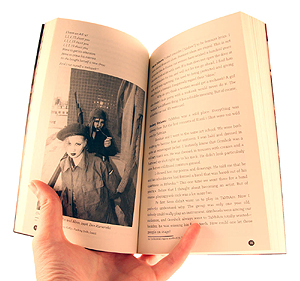'What About Tomorrow?'
By: Alexander Herbert - Microcosm Publishing, $19.95
Description: Punk arrived in Soviet Russia in 1978, spreading slowly at first through black market vinyl records and soon exploding into state-controlled performance halls, where authorities found the raucous youth movement easier to control.
In fits and starts, the scene grew and flourished, always a step ahead of secret police and neo-Nazis, through glasnost, perestroika, and the end of the Cold War.
From its origins in St Petersburg and Moscow to uniquely thriving punk scenes in the provincial capitals, this glimpse behind the iron curtain feels immediate, real, and more relevant than ever. [Includes never-before-published photographs of many of the bands].
Verdict: Despite a few albums smuggled out of the country and released in Europe and the US, most Westerners had never heard of Russia's punk movement until Pussy Riot burst onto the international stage.
A Russian feminist protest punk rock group based in Moscow and founded in August 2011, it has had a variable membership of approximately 11 women ranging in age from about 20 to 33.
Known for staging unauthorized provocative guerrilla performances in public places, performances that were subsequently filmed as music videos and posted on the Internet, the collective's lyrical themes included feminism, LGBT rights, and opposition to Russian President Vladimir Putin; whom the group considered to be a dictator, and his policies.
But, as you will soon find out by delving into this quite eye opening and extraordinary oral history of lives (perhaps) led outside of your daily peripheral, 'What About Tomorrow? An Oral History of Russian Punk from the Soviet Era to Pussy Riot' is that throughout the past four decades of the scene's evolution music has always been the mainstay of challenging the regime and of acquiring political self-empowerment.
From the early bands like Avtomaticheskie Udovletvoriteli (“Automatic Satisfiers,” a play on the Sex Pistols) and Naive to more contemporary bands like Distress, Ricochet, and the anti-fascist Proverochnaia Lineika (Straight Edge), this is more than just an oral history: It is the first English book about Russian punk subcultures, featuring never-before-published photographs and interviews, bringing all you never knew (or even thought you actually knew) to the comfort of your American home.
Focusing on Western Russia, and in particular Moscow and St. Petersberg (although there is the one chapter donated to the punk scene within the provinces, combined with another chapter compiled by Vladimir Kozlov on Siberian Punk), 'What About Tomorrow?' forgoes the punk tales heard from Russia east of the Ural Mountains and all the post-Soviet space to bring a more concise and bolstered tale to us.
For in telling these stories of a nation's punk history, author Alexander Herbert does everything within his power to resonate through words just how the subculture of punks resonated through Russia and what it actually meant to the country over time.
The conversations found with the book, a fair magnitude of them previously published interviews or texts, but some never-before-published, span 2013-2017 and are as wondrously tale-telling as you would have hoped they would be.

The joyous amount of black and white photographs included all represent and showcase the exact time period perfectly. Most all live shots, some backstage too, there's even exclusive photography of young and upcoming, raw and inexperienced Russian bands playing their first gigs in their parents living rooms!
For sometimes concerts were organized in casual premises, such as schools and libraries, and yes, even front rooms (when parental permission was given, of course), because it was a unique time, full of idealism and enthusiasm.
And that is what this brilliant book is all about: A written and photographic documentation of a time where all the members of the growing Russian punk scene were young, naïve, and thoroughgoing, and who gave their all for its development.
Official Book Purchase Link
www.microcosmpublishing.com

